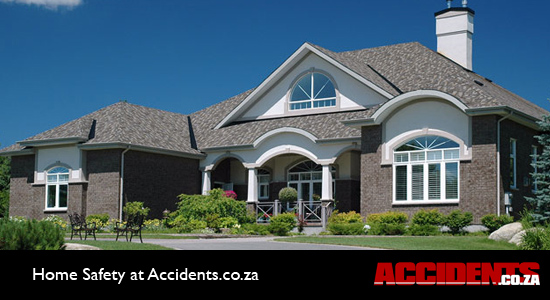
Home is the place you go to after a hard day’s work, somewhere you can go to relax and recuperate. I’m sure most of us think that our homes are indeed the safest place our loved one could be, whether a child, spouse or elderly parent. If one starts to think about potential hazards, a number of us would be guilty of having them in our homes, possibly unknowingly.
How often have you dashed out of the room, if only for a minute or two, leaving either a heater on, candle lit, or even an appliance with an element on. These are all potential fire hazards, and without becoming paranoid, be mindful of the events that could take place and it may only take a second.
In every room of the house may be something seemingly small that could turn into a disaster.
Consider those things as you walk through your front door. Do you drop your keys off on a table, with the lanyard hanging over the edge where a child could pull them down, are your blind chords tucked away or hanging loosely down the wall, have you taken your coins out of your pocket the night before, leaving them on the coffee table, in reach of a curios little one’s hands?
Most of these potential hazards are easy to fix, and only need a change of habit. Put a key hanger up near your front door, it is easier to kick an older bad habit once a newer one makes life simpler. Think about it, no more running around in an early morning frenzy looking for misplaced keys, they are right there on their hook at the front door as you are ready to go. If you always have loose coins in your pockets, place a small container near the washing basket, and before you change your clothes, check your pockets and place small loose items in the container, and keep in mind that it needs to be on a higher shelf or window sill.
It is easy to come across information on keeping your little ones safer around the house, be it ‘child proofing’ kitchen and bathroom cupboards containing hazardous materials, or keeping glassware on those top shelves in the kitchen to prevent accidents.
Have you ever thought about how an elderly person would need to be assisted in making their home safer? Yes, they have been through it all, but as we all know, with age comes slower reactions and forgetfulness. Make sure those small mats covering the cold tile or wood floors are fixed down. Shuffling feet can easily catch on a loose edge, and brittle bones make a fall that much more traumatic and painful.
Another aspect of protecting the elderly in their homes, is keeping a mindful eye on their medications. Not all medications may be taken in the mornings, so a little help will go a long way to avoid confusion, and overdosing. It can be as simple as placing the morning and evening capsule containers in different rooms of the house. For example, morning medication containers can be left near the breakfast cereals in the kitchen, and evening ones in the bathroom in the cabinet, so that they can be taken before the final teeth brushing session for the day.
It is always advised to keep a somewhat simple version of a first aid kit in your home that is easily accessible in the case it should one day be needed. Below is a list of items that may come in handy:
1. Small pair of scissors
2. Plasters
3. Two or three small crepe bandages
4. Burnshield dressing
5. A pair of latex gloves
6. Tweezers
7. Antiseptic ointment/spray
8. Thermometer
All of the above are easily located at your local pharmacy, and inexpensive. Remember to check ointments regularly as they tend to have an expiry date.
For more information, search for safety tips with regards to your personal requirements on the internet.
The more you know about your own home and potential hazards, the easier it is to correct, and provide a safer living space for yourself and your loved ones.
Vanessa Jackson
Medicopter Ground Support Unit
Johannesburg & Northern Region
ER24 EMS























